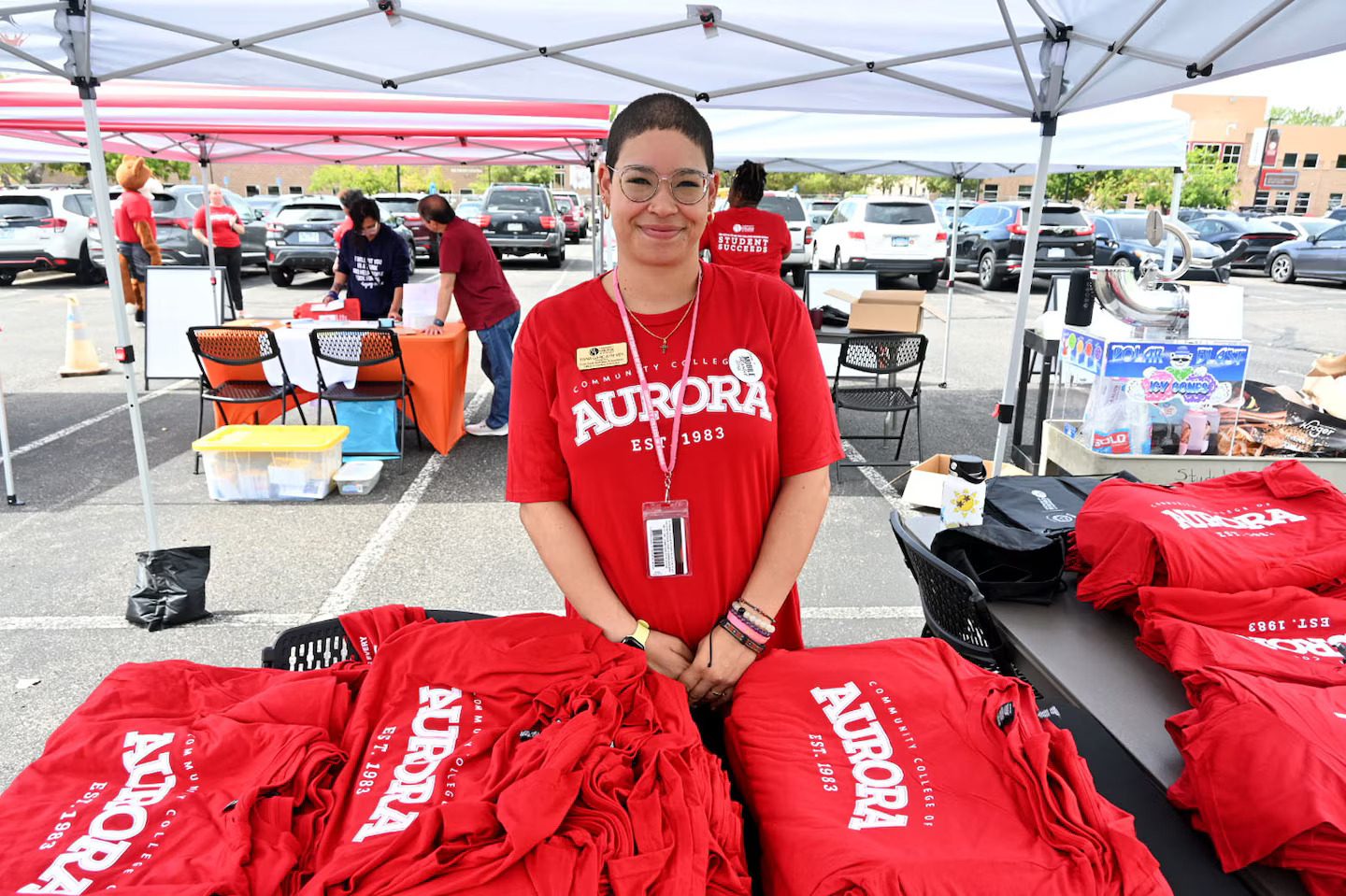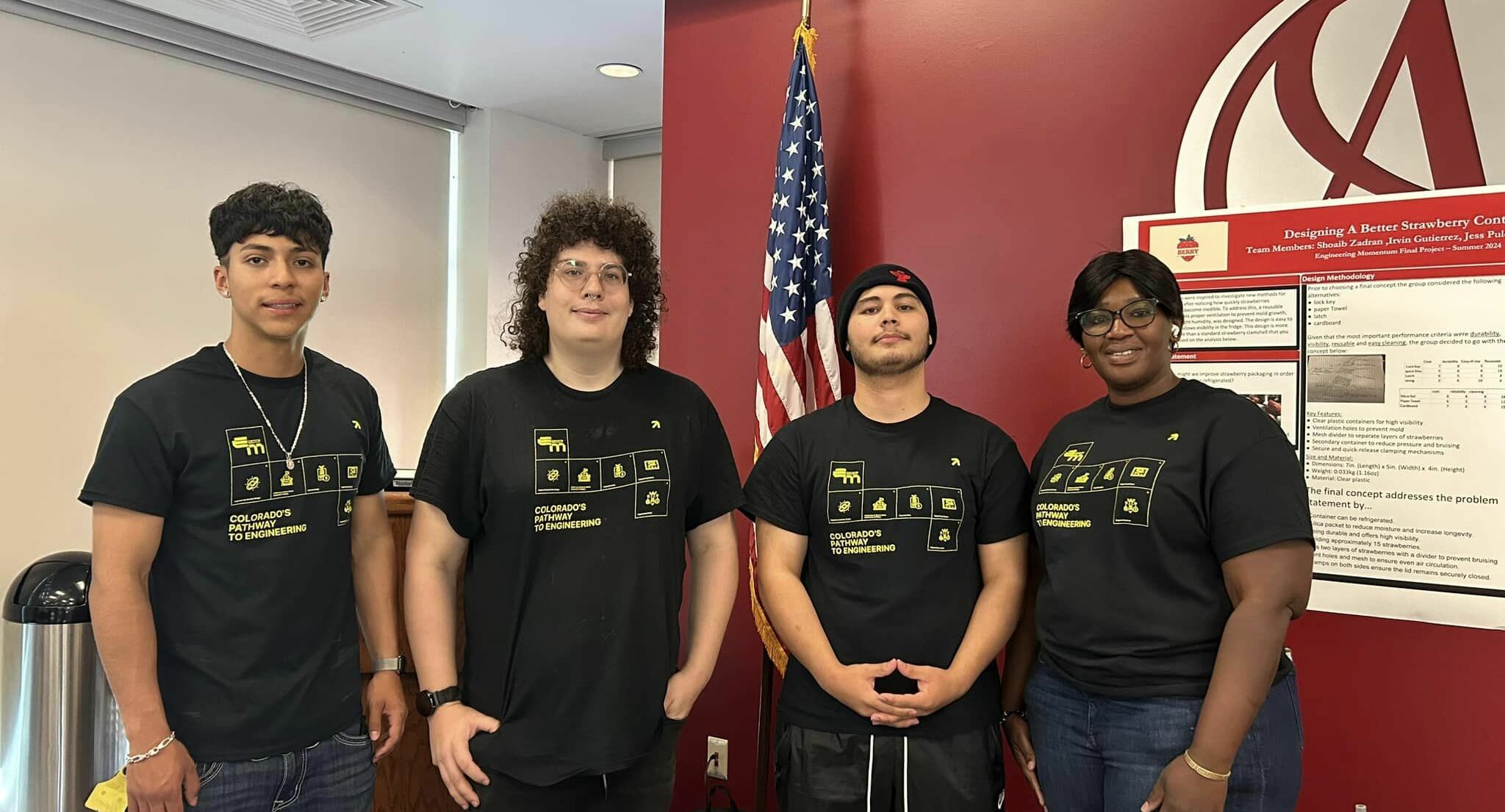Original article published in the Association for Career & Technical Education May 2024 Techniques Magazine. Written by Janae Hunderman and O.H. Perry Pepper IV.
The phrase “meet learners where they are” is rarely implemented as literally as it is in the community-centered approach of Pueblo Community College Southwest (PCCSW). There, educators bring career and technical education (CTE) directly to Native American learners. Rather than requiring students to come to the campus, where they often face cultural and logistical barriers to accessing high-quality CTE, the Ute Learner Success program offers learning opportunities within the tribal communities of southwest Colorado.
Perry Pepper, PCCSW’s director of academic services, has cultivated strong relationships with the Ute Mountain Ute and Southern Ute tribes of the Ute Nation. And recognizing the flaws in the traditional educational model, Pepper continues to emphasize that the challenges lie in the structures themselves. Education leaders at PCCSW seek to shift the paradigm by embedding opportunities into learners’ communities.
Aligning with Local Needs
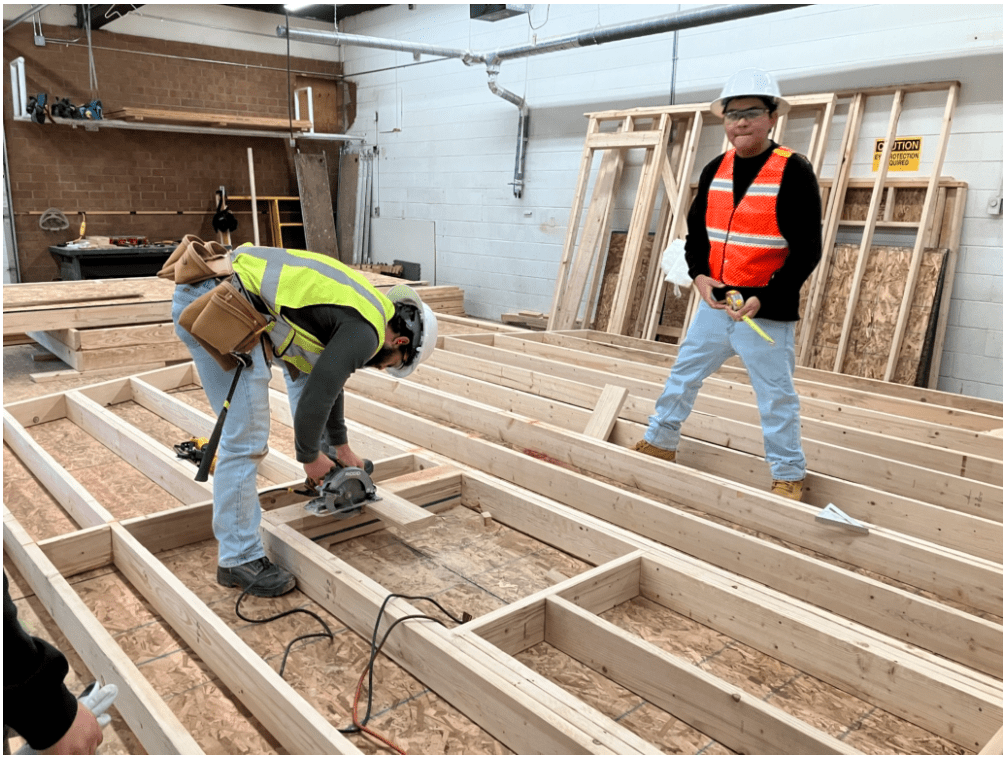
The initiative at PCCSW starts with understanding the unique needs and aspirations of the Ute Mountain Ute and Southern Ute community members. Consider the Aspen Institute’s (2022) Thrive Rural Framework; their work “is grounded in the relationships and connections that underlie rural development: people, governments, and systems all working together and in parallel to achieve greater rural prosperity for all.” Inspired by this research, PCCSW first sought to better understand the communities they served, asking questions and ultimately tailoring the program to what they discovered.
For example, a substantial portion of the homes in the community of Towaoc, on the land of the Ute Mountain Ute Tribe, were constructed by the U.S. Department of Housing and Urban Development (HUD) in the 1960s and 1970s. Unfortunately, the federal government did not maintain the houses as intended, and many structures have begun to deteriorate. The newest home was built in 1973. While the tribe has been granted control over the HUD-built houses, construction skills are sorely needed in the community. Developing a construction trades program not only improves the job opportunities for the tribal members but develops a skilled community of neighbors to support each other.
Achieving Community Support
With the community needs at the forefront, PCCSW moved on to secure financial support to develop innovative programs. And they received funding via the Racial Equity in Adult Credentials in Higher Education (REACH) grant, from the Lumina Foundation.
The REACH grant — which can fund entire programs, including textbooks and supplies — intends to increase credential attainment of African American, Hispanic, and Indigenous learners aged 25 and older. Ayelet Zur-Nayberg, Ed.D., director of adult student success at the Colorado Community College System, administers the grant and is passionate about non-credit programming as a flexible strategy for adult learners. Especially within Native communities, where tribal customs and other responsibilities may require more of their time. The flexibility of non-credit programming allows space for students to achieve the necessary balance for success.
In a conversation with the writers, Zur-Nayberg shared her perspective that Pepper “is unique in the sense that he has really high sensitivity to nuance. He knows how to listen to the needs of the Native community” and collaborate effectively.
PCCSW used the REACH grant funding to develop programs in construction, information technology and drone aviation. The drone class, taught by a local tribal educator, met its enrollment capacity within two hours! This made it clear that PCCSW “tailored the right programs to the right locations.”
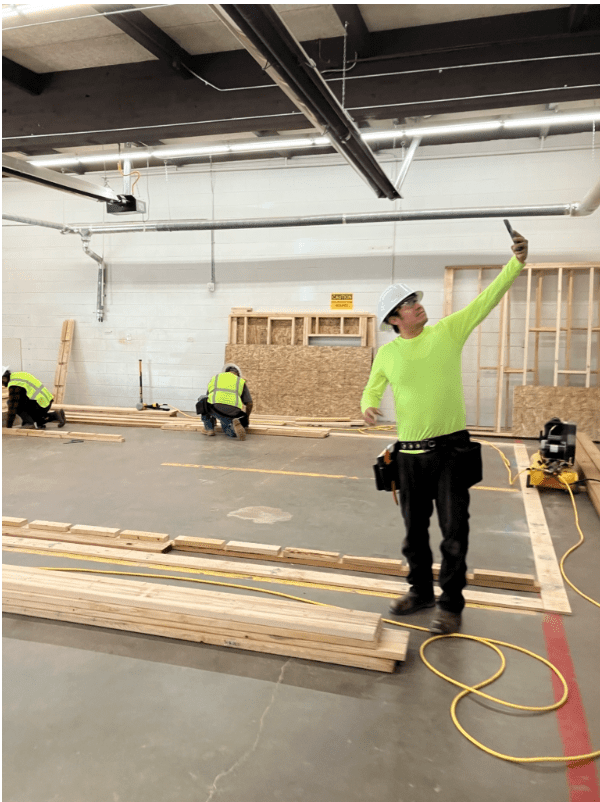
Removing Barriers to Improve Access
Key to their success are the ongoing partnerships between the college and the community. The college has expertise in program development and delivery, while the tribal members contribute cultural knowledge, community connections and the commitment to making education accessible. In particular, hiring tribal educators helped make many underrepresented learners to feel welcome.
PCCSW’s construction trades students framed an entire house in partnership with Habitat for Humanity. Educators and community members expressed a desire for learners to participate alongside a diverse population, hence the class was marketed to youth and adults, tribal members and non. The final makeup of the class included 11 students: five students from area high schools, four students from Towaoc, and two students from nearby Cortez, Colorado. In total there were seven Native American participants.
The group worked side by side to frame each piece of the house in sections that were then transported to the home site, where the learners supported the assembly. Next, students in the electrical trades will begin to work on wiring the home.
Empowering Learners to Challenge Stereotypes
Fawnda Cotonuts, a Ute Mountain Ute tribal elder, embodies what empowerment through education can bring. She isn’t letting aging be a barrier to her continued learning. She said she “doesn’t have time to get old.” Instead, she’s learning how to operate power tools in the construction class. Not only does she want to be able to fix her own home in Towaoc, but she wants to leave a legacy of skills to inspire her children and grandchildren. She’s taking the drone class so she can check on the fences and her cows, and because she believes these classes can teach her community to become self-sustaining.
She shares that being on the ladder with her nail gun, she feels on top of the world and “If you could measure happiness, those days out there on the house would’ve been through the roof,” said Cotonuts. She has developed a sense of ownership over her education, and she is an advocate for herself and others.
Preserving Cultural Identity
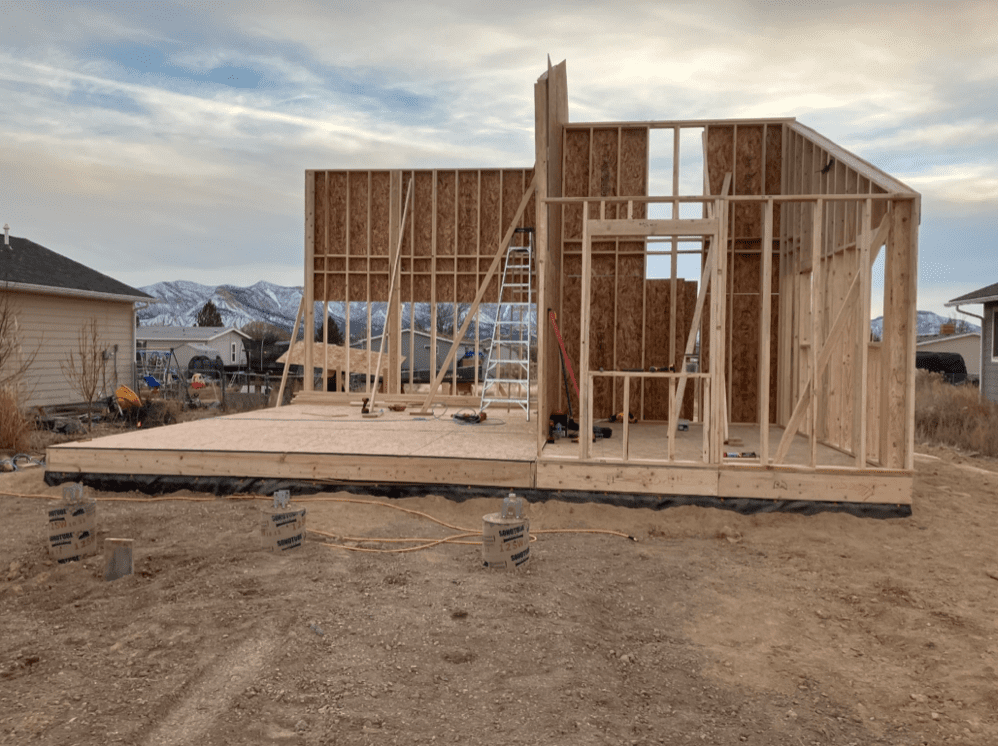
Increasing opportunities for Ute students benefits not only them, but the surrounding communities as well. This work is promoting cultural awareness and the opportunity for everyone to learn about Ute history, traditions and values.
Most importantly for Cotonuts, these educational opportunities create role models for younger generations, demonstrating that higher education and career success are attainable goals, even in rural areas. They “let people see that there is life and money out there.” The celebration of education taking place in the community fosters a sense of pride, which then strengthens community bonds and motivates others to participate.
PCCSW and Habitat for Humanity have plans to continue their collaboration, connecting the building trades program with local needs. The construction of a new house makes a tangible impact on the community and emphasizes the importance of high-quality CTE for all. Upon its completion, a single mother will move in, and her children will hopefully find inspiration in the community energy vibrating in the walls of their home. PCCSW’s commitment to breaking barriers and fostering inclusivity serves as a beacon for all educators, inspiring each of us to transcend theoretical concepts, to address historical disparities, and to truly set the stage for economic empowerment.
About the Authors
Janae Hunderman works at the intersection of education and workforce development, believing that each individual deserves to find work they enjoy. She is the workforce resilience program director for the Colorado Community College System and was a 2023 fellow in ACTE’s National Leadership Fellowship Program.
O.H. Perry Pepper IV studied American history as a nontraditional student, and he is deeply committed to not repeating history. He serves as the director of academic services for Pueblo Community College’s Southwest campus.
